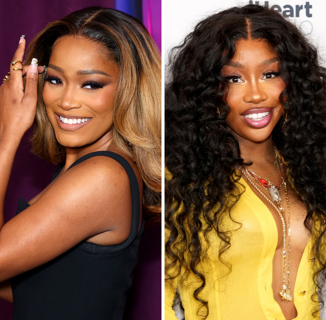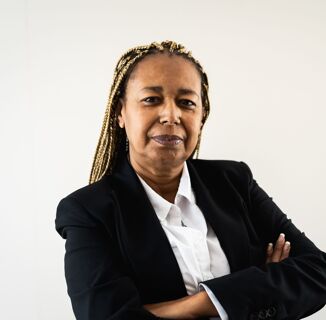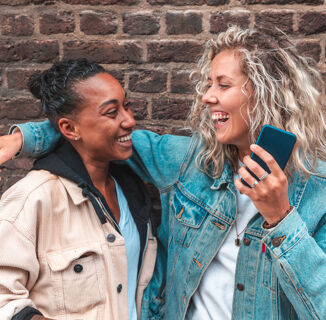LGBTQ rights reentered public discussion in Georgia last week as the captain of the country’s soccer team thanked fans for supporting him and his advocacy work.
A video posted online shows Guram Kashia throwing his shirt into the crowd while they cheered for him. Some in the video are wearing rainbow paraphernalia, including armbands similar to the one that kickstarted Kashia’s public profile as a supporter of LGBTQ rights.
Kashia was recently awarded the first #EqualGame award by the Union of European Football Associations (UEFA) for promoting equality for LGBTQ people. Kashia had joined team captains in wearing a rainbow armband while playing for the Dutch team Vitesse in 2017.
The reaction in Georgia wasn’t too affirming. Soon after he wore the armband, the BBC reported that a rainbow flag was burned outside the Georgian Football Federation’s headquarters and Kashia himself faced threats. Some also called for the country’s soccer team to drop him.
In June, however, Kashia was elected captain of Georgia’s national team.
UEFA, an umbrella organization of 55 national soccer associations in Europe, said in a statement announcing Kashia as the winner that the #EqualGame award recognized a player that acted as a role model in championing diversity and inclusion in European soccer.
The organization’s president, Aleksander Ceferin, said in the statement, “I congratulate Guram for his strong character and his courage. Guram has taken an important stand to support the LGBT community and equality overall and deserves to win this award.”
“I am honored that UEFA has picked me as the recipient of the #EqualGame Award,” Kashia said in response to winning the award, according to the statement. “I believe in equality for everyone, no matter what you believe in, who you love or who you are.”
“I will always keep defending equality and equal rights for everyone, wherever I will play,” he added.
Following the game in which Kashia thanked his fans, the Georgian LGBTQ rights group Equality Movement released a statement saying that some people had their rainbow items confiscated by security and officials from the ministry of internal affairs.
“The state avoids fulfilling its obligations and strives to suppress the visibility of LGBT people. For ensuring the security, instead of holding violent citizens responsible, the state perceives the LGBT symbols as a provocation and restricts the expression of the oppressed groups,” the group said.
Giorgi Tabagari, co-founder of the Equality Movement, told INTO in an email that he was able to smuggle in a rainbow flag only to have it taken away.
Regardless of what happened at the game, Tabagari still sees Kashia’s support as a positive, especially in contrast to the homophobic and transphobic attitudes that are still common in the country of 3.7 million people.
“It might not be visible now and might be intangible, but I’m sure many people gave a thought about the cause, which is undoubtedly a step forward for our work,” he explained.
It also provides Tabagari and other activists a wider audience for their work without the financial strain it could have on the organizations working with a marginalized group.
“Carrying out a campaign of that scale would require a lot of financial and human resources, but thanks to Guram, we got it for free in Georgia,” he said.
“Considering the fact that [soccer] is a number one sport in Georgia, which also happens to be one of the most masculine sports, Kashia’s actions deserve only appreciation,” Tabagari told INTO.
Kashia also plays for the United States’ Major League Soccer team the San Jose Earthquakes.
Georgia, bordering Armenia, Azerbaijan, Russia, and Turkey, received a score of 26 percent and ranked 33 out of 49 countries in the international LGBTQ rights group ILGA-Europe’s annual assessment.
Image via Getty
Help make sure LGBTQ+ stories are being told...
We can't rely on mainstream media to tell our stories. That's why we don't lock our articles behind a paywall. Will you support our mission with a contribution today?
Cancel anytime · Proudly LGBTQ+ owned and operated
Read More in Impact
The Latest on INTO
Subscribe to get a twice-weekly dose of queer news, updates, and insights from the INTO team.
in Your Inbox












